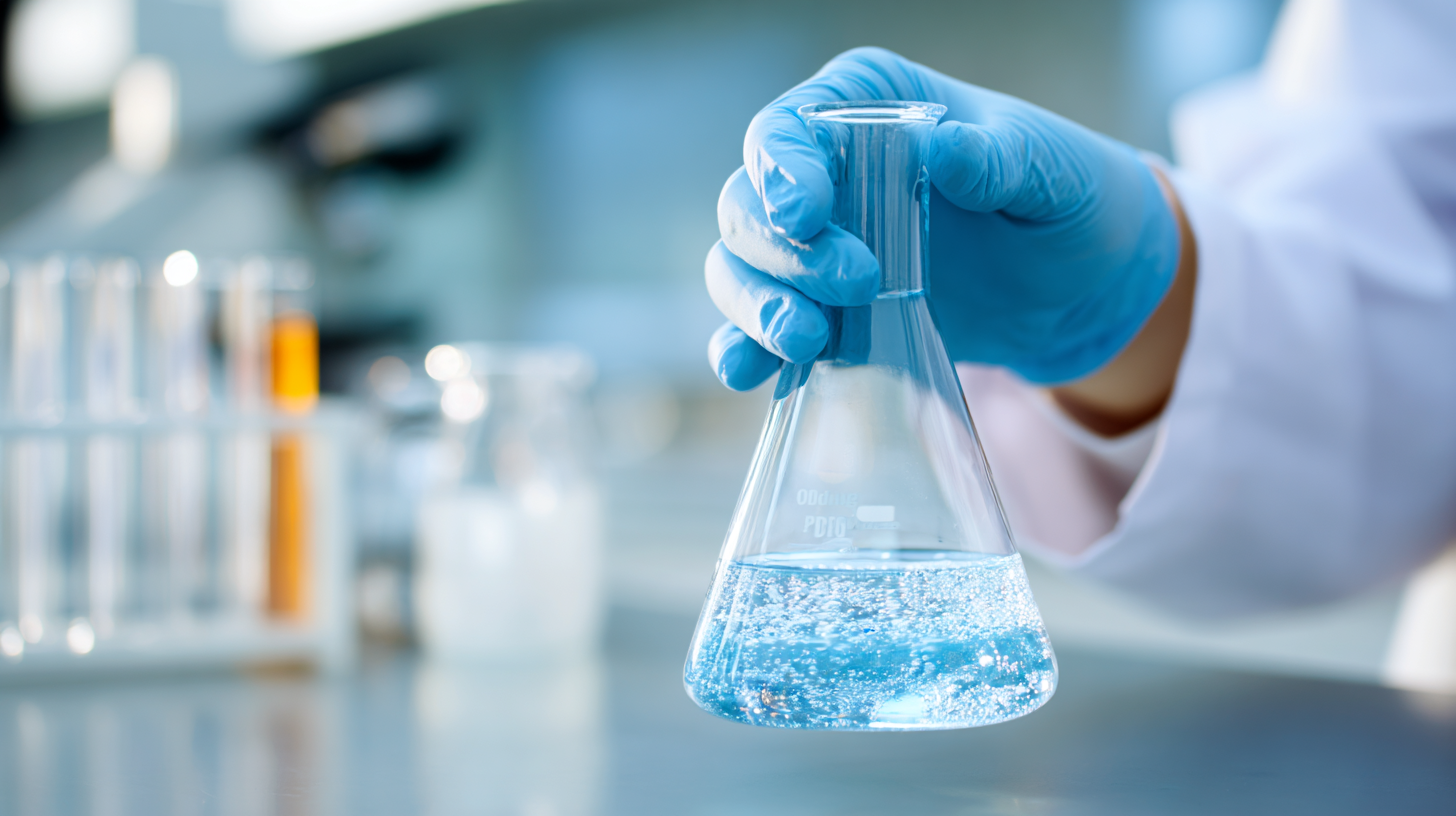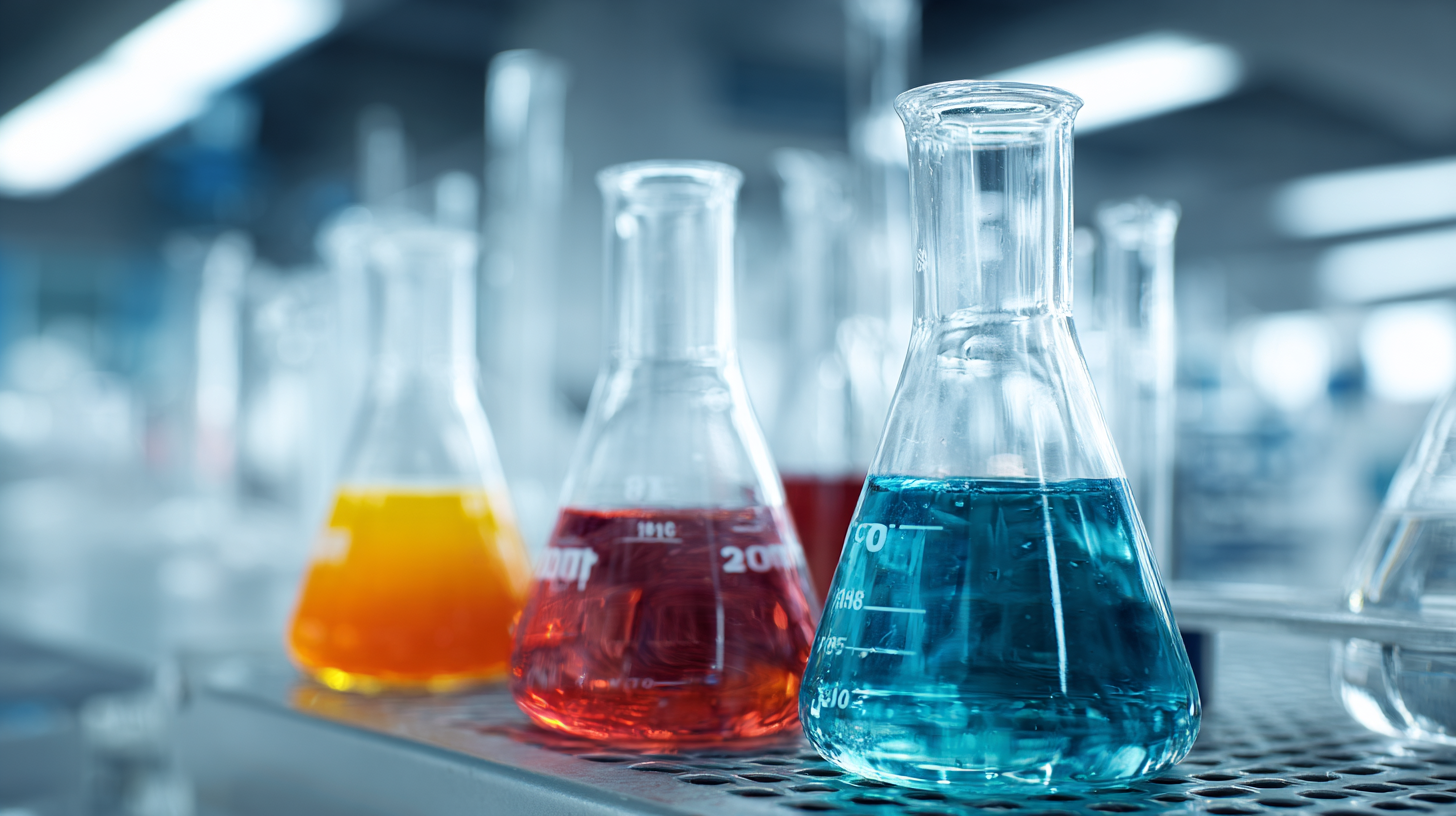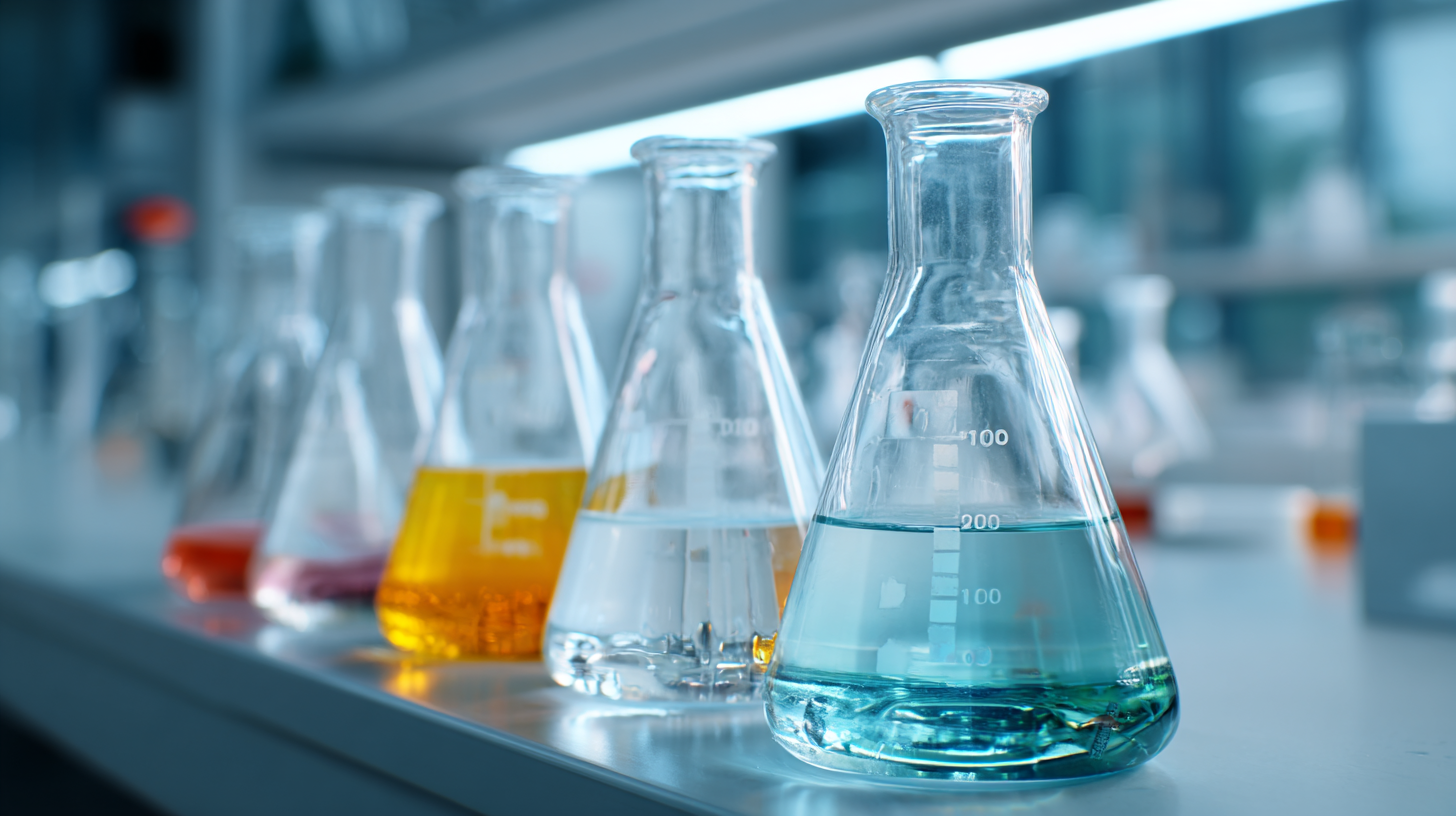In laboratory settings, precision and reliability are paramount, especially when it comes to measuring liquids. The PTFE volumetric flask has emerged as a crucial tool for chemists and researchers, known for its superior chemical resistance and ability to maintain dimensional accuracy. According to a report by MarketsandMarkets, the global laboratory glassware market is projected to reach USD 6.2 billion by 2025, underscoring the increasing reliance on high-quality volumetric flasks for various applications. With the growing demand for durable and contamination-free measuring instruments, understanding how to choose the best PTFE volumetric flask for your laboratory needs becomes essential. Whether you are involved in pharmaceutical research, environmental testing, or educational laboratories, selecting the right flask can significantly impact the quality of your results and overall lab efficiency.

When selecting the best PTFE volumetric flask for your laboratory needs, evaluating after-sales support is crucial. Given the projected growth of the PTFE market, which is expected to expand from USD 1.2 billion in 2024 to USD 1.8 billion by 2033, it's essential to partner with manufacturers that offer robust support. Strong after-sales service ensures that if any issues arise with your volumetric flasks, you have access to timely repairs, replacement, and customer service.
**Tips:** Always inquire about the warranty provided. A longer warranty period often indicates the manufacturer's confidence in their product's durability and performance. Additionally, verify if the company provides training or resources to optimize your use of the flasks, which can greatly enhance your laboratory's efficiency.
Moreover, as innovations within the PTFE sector continue to evolve, like the transition to PFAS-free solutions, it is imperative to choose a supplier that is keeping pace with these advancements. This not only ensures compliance with emerging regulations but also enhances the safety and effectiveness of your lab operations.
**Tips:** Look for companies that regularly update their product offerings and demonstrate a commitment to environmental regulations. This can indicate their reliability and foresight in an ever-evolving industry.

When it comes to laboratory equipment, understanding repair costs is essential for efficient budget management. PTFE volumetric flasks, while durable and resistant to various chemicals, can occasionally require repairs due to mishandling or wear over time. Knowing the potential costs associated with these repairs can help you prepare for unexpected expenses and choose equipment wisely.
**Tip:** Regular maintenance can significantly reduce the likelihood of costly repairs. Make sure to clean your flasks appropriately and inspect them routinely for signs of wear. Implementing a maintenance schedule helps identify issues early, saving you money in the long run.
Additionally, it's crucial to factor in the costs of both labor and parts when considering repairs. Technician fees can vary widely, and sourcing high-quality replacement parts may also impact your overall expenses. Understanding these variables can empower you to make informed decisions about repair versus replacement.
**Tip:** Keep a detailed record of all repairs and associated costs. This information will not only guide future purchasing decisions but also assist in negotiating terms with service providers based on your lab’s specific repair history.
When selecting a PTFE volumetric flask for laboratory use, understanding the importance of warranties and service agreements is crucial. A solid warranty not only provides assurance regarding the quality and durability of the flask but also serves as a safeguard against potential manufacturing defects. In a laboratory setting, where precision is paramount, a reliable warranty can mitigate risks associated with equipment failure, thus ensuring continuous and accurate results.
In addition to a warranty, service agreements can greatly enhance the user experience. They often cover maintenance and repairs, which are essential for sustaining the operational integrity of laboratory instruments. As laboratories frequently invest in high-quality equipment, having a service agreement in place can help manage costs associated with unexpected breakdowns and prolong the lifespan of the flask. It's important to carefully evaluate these options before making a purchase, as they can significantly impact overall satisfaction and efficiency in laboratory work.
When selecting PTFE volumetric flasks for laboratory use, the reliability of suppliers plays a crucial role in ensuring quality and performance. According to industry reports from the International Laboratory Supply Association, laboratories that source equipment from certified suppliers experience a 30% reduction in equipment failures, highlighting the necessity of partnering with reputable providers. Quality assurance processes and regulatory compliance are paramount, as PTFE flasks must withstand harsh chemicals and high temperatures without degrading.
Moreover, expert reviews suggest that suppliers who perform rigorous testing on their PTFE products tend to offer superior longevity and resistance to corrosion. A survey conducted by the American Chemical Society indicated that 75% of laboratory professionals prefer vendors who provide detailed product specifications and test data. This trend underscores the importance of transparency in sourcing laboratory equipment, which not only aids in meeting regulatory standards but also enhances safety and reliability in laboratory operations. Thus, choosing a reliable supplier is not just about cost; it significantly influences laboratory efficiency and outcomes.
Maintaining the longevity of PTFE volumetric flasks is essential for any laboratory aiming for precision and reliability in their experiments. Just as a veterinarian emphasizes the importance of routine check-ups to ensure animal health, laboratory staff should adopt regular maintenance practices for their PTFE flasks. This includes thorough cleaning after each use, ensuring that the flasks are not subjected to extreme temperature changes, and inspecting them for any signs of wear or damage. These proactive steps will prevent contamination and prolong the life of the flasks.

Additionally, much like the strategies used in maximizing the longevity of RV batteries, taking time to store PTFE flasks properly can significantly impact their lifespan. Avoid storing them in direct sunlight or near corrosive substances, and consider using protective cases or cabinets to shield them from potential hazards. Implementing these maintenance tips will not only enhance the performance of your volumetric flasks but also help maintain a consistent and dependable laboratory environment.
